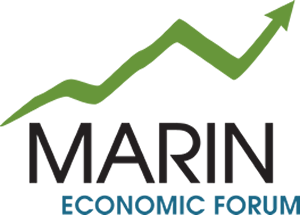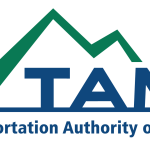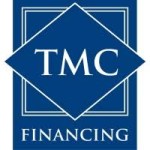Marin County business boosters study what it takes to attract, keep, grow employers
As companies continue to squeeze into the already crowded confines of San Francisco and Silicon Valley, some turn further north instead, attracted by a different lifestyle, cheaper rents and breezier commutes.
One of those companies is Gemini Data, which moved from San Francisco’s Presidio to the Drake’s Landing office complex in Greenbrae last summer. CEO and founder Tony Ayaz singled out the availability of commercial real estate and better pricing compared with San Francisco as a major factor in the decision to move north.
“You can get a lot more for your money in Marin County than you can in the city,” he said.
Ayaz said his software development company has been growing rapidly in recent years and plans to staff up particularly in its Marin headquarters while also expanding its operations in offices in Asia, Europe and elsewhere. He said having more space allows for that kind of rapid expansion.
Ayaz’s company caters primarily to data analysts and scientists. The information they need may be located in different databases and Gemini’s software allows them and other employees to access that data without having to move or copy it. This allows people from across a company to see trends in commonly accessible information as well as feed it into artificial intelligence algorithms, he added.
“Everybody is invested in these big data platforms and has lots of data but don’t know how to connect the dots,” Ayaz said.
“We take the friction out of data collection,” said Joanne Blum, strategic communications consultant for Gemini.
Ayaz also emphasized that his company’s North Bay location gives him access to talent pools across the Bay Area. He said engineers are a key hiring area for his company along with sales and marketing professionals, putting him in competition with tech giants like Salesforce in San Francisco. Marin’s quality schools and outdoor aesthetic are attractive options for mature working families as well as millennials, Ayaz said.
But it remains to be seen if more companies like Gemini are migrating north from traditional technology hubs for Marin’s avocados and sunshine, according to Mike Blakeley, the CEO of the Marin Economic Forum.
“The economic growth that comes from existing businesses is not necessarily attracting new ones,” Blakeley said.
He said the council is conducting a business retention and expansion project in Marin County to measure the health of local businesses. Blakeley said the project includes focus groups with businesses and entrepreneurs, one-on-one interviews with companies, and a survey of businesses in the fall. The goal is to identify opportunities for and impediments to growth.
As far as retention, after speaking with over 40 businesses, he said the No. 1 issue for all of them is staffing.
“Labor, like housing, is tight because there is not enough supply of workers. But here is why I also consider the labor shortage a crisis: Unlike housing, our labor supply is diminishing,” Blakeley wrote.
He also noted the county imports over 60% of its workforce, while older adults continue to age out of the workforce, further shrinking the available talent pool.
Blakeley said Marin also comes up short in terms of crucial factors that might attract more companies like Gemini from San Francisco and other parts of the Bay Area.
“It doesn’t seem we have enough of the key factors in terms of angel investors or venture capital funding,” Blakeley said, noting the lack of incubators that startups typically go to for early-stage support before they can scale up and take on an expensive office lease.
Marin had business incubators in the early years of this decade, with ventures by Keiretsu Forum and Venture Greenhouse by Dominican University of California, but those ventures closed after a few years.
Blakeley said there are often instances where a company remains in Marin because its founder lives there or starts in the county but migrates south once it grows to a certain size.
He did not disagree, however, that there are still elements like those cited by Ayaz that make Marin a desirable location to live and work. He pointed to Nucleo Life Sciences as an example, a pharmaceutical company that relocated to San Rafael from San Francisco in 2016.
The Marin Economic Forum plans to start researching the differences between prices for office space between locations like Corte Madera and Emeryville, Blakeley noted, adding there is some evidence employers may be able to pay lower salaries in Marin than in San Francisco or the East Bay.
Marin could also be a candidate for alternative work arrangements Blakeley said, pointing to the opening of a WeWork coworking space in Mill Valley.
“There is talk about how Marin could be a place for satellite offices,” for smaller teams of workers or people who work remotely for large companies in San Francisco and don’t necessarily want to work in their house, Blakeley added.
For Ayaz of Gemini, the advantages of more space and a lifestyle outside of the rat race of San Francisco and Silicon Valley are more than just financial however.
“Being in Marin County reminds me of SoCal where I grew up,” he said. “The weather, the atmosphere, drives a little more positive energy.”
Staff Writer Chase DiFeliciantonio covers technology, banking, law, accounting, and the cannabis industry. Reach him at chase.d@busjrnl.com or 707-521-4257.
Be the first to receive updates and news from MEF by subscribing or liking us on our social media pages: Facebook, Twitter, and LinkedIn!
Tags: news














